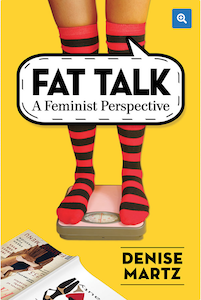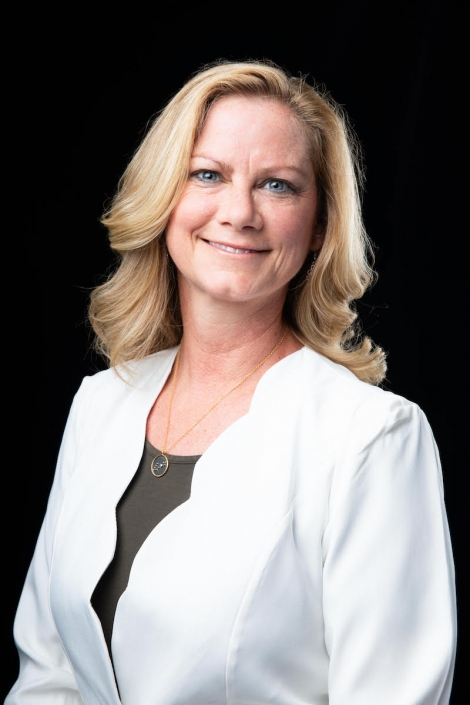Dr. Martz will not be taking a new doctoral student into her women's health lab for the Fall 2025 PsyD cohort.
Research Interests
Fat Talk
Fat talk and body snarking -- as our Feminine Enemies -- are veiled adversaries for modern women. Fat talk is critical dialogue about one's physical appearance, which for feminists, it is an unintentional way women have become their own enemies. Body snarking is when people critique other women's appearance, which for feminists represents contemporary aggression against women, and has contributed to our inability to elect politicians who represent feminist activism. Furthermore, most Americans are unaware of the power and pervasiveness of these hidden enemies on our psyches and society. This book will reconcile historical conflict between evolutionary psychology and feminist scholars to help us understand how genetics and culture make women's beauty germane and explain fat talking and body snarling as consequences. It will overview the vast literature on the effects of fat talk and body snarking on women and offer potential solutions including evidence-based personal therapies and community interventions. The goal is to lead readers in personal reflection of themselves, as well as to form a feminist agenda of strategic activism that helps our society move beyond these toxic forces fueling sexism and misogyny in our culture. It is time to understand and end our Feminine Enemies.
We currently have studies focusing on fat talk in relationships, the link between weight teasing, fat talk, and eating disorders, and feminist responses to end fat talk.

Interpersonal Violence
Interpersonal violence (IPV) disproportionately affects women and minoritized groups. Our lab has studied how women with eating disorders are affected by both in person and technological IPV, how high school students who identify as LGBT are more likely to have been bullied, and how IPV histories are associated with a variety of psychological disorders. Because women who are victims of domestic violence frequently present for help in primary care and emergency department settings, we have developed a training intervention for health care providers on how to screen and effectively intervene when IPV is present.
Body Image in Women of Color
Our lab has studied some of the unique body image issues that women of color experience in our culture. More specifically, we have found that both skin color dissatisfaction (too dark) and hair texture dissatisfaction (too curly) are associated with perceived racism and especially perceived colorism in these women. We have focused on developing culturally sensitive measures to capture these body image concerns for future research exploration.
Education
- Clinical Psychology Internship Specializing in Behavioral Medicine, 1993-1994, Medical University of South Carolina
- Ph.D., 1994, Virginia Tech, Clinical Health Psychology
- M.S., 1991, Virginia Tech, Clinical Health Psychology
- B.S., 1989, Virginia Tech, Honors Psychology
Popular Press on "Fat Talk"
Resisting Fat Talk
Psych Central 10 Ways to Stop Fat Talk
https://blogs.psychcentral.com/weightless/2010/08/body-image-fat-talk-qa-with-expert-denise-martz/
Operation Beautiful
http://www.today.com/popculture/operation-beautiful-just-say-no-fat-talk-wbna38560934
Fat Talk on Bottom Line
https://bottomlineinc.com/health/weight/be-fat-talk-freefinally
Our Bodies Ourselves
https://www.ourbodiesourselves.org/2007/03/research-round-up-fat-talk-early-puberty-and/
Books
- Martz, D.M. (2019). Fat Talk: A Feminist Perspective. McFarland Publishing: Jefferson, NC.
Order the book here
Also available via the ASU library here
Publications
- Sandoval, C.M., Martz, D.M., Bazzini, D.G., Webb, R.M., Hinkle, M.M., & Francis, L. (2022). Does fat talk affect relationship and sexual satisfaction? Adults’ perceptions of fat talk in a fictional romantic relationship. Eating Behaviors, https://doi.org/10.1016./j.eatbeh.2022.101603.
- Arroyo, A., Stillion Southard, B., & Martz, D. (2022). Feminist embodiment, body talk, and body image among mothers and daughters. Body Image, 41, 354-366. https://doi.org/10.1016/j.bodyim.04.005.
- Batchelder, H., Martz, D.M., Curtin, L.A., & Jameson, J.P. (2021). Interpersonal Violence is Associated with Eating Disorder Behaviors in Rural Adolescents. Journal of Rural Mental Health. https://doi.org/10.1037/rmh0000186.
- Ellis, J.M, Schenk, R., Galloway, A.T., Zickgraf, H., Webb, R.M., & Martz, D.M. (2018). A multidimensional approach to understanding the potential risk factors and covariates of adult picky eating. Appetite, 125, 1-9. doi:10.1016/j.appet.2018.01.016
- Ballard, M.E., Jameson, J. P., & Martz, D.M. (2017). Sexual identity and risk behaviors among adolescents in the rural southern United States. Journal of Rural Mental Health, 41(1), 17-29. doi:10.1037/rmh0000068
- Rogers, C., Martz, D.M., Webb, R.M., & Galloway, A. (2017). Everyone else is doing it (I think): The power of perception in fat talk. Body Image. DOI10.1016/j.bodyim.2017.01.004
- Martz, D.M., Jameson, J.P., & Page, A.D. (2016). Psychological health and academic success in rural adolescents exposed to physical and sexual violence. American Journal of Orthopsychiatry, DOI: 10.1037/ort0000174
- Martz, D.M., & Rogers, C.B. (2016). Understanding and treating women's body image and eating disorders. North Carolina Medicine Journal, November.
- Mikell, C. M., & Martz, D.M. (2016). Women's Fat Talk Can Kill the Mood for Men. Eating Behaviors, 21, 211-213. doi.org/10.1016/j.eatbeh.2016.03.007
- Fiery, M., Martz, D.M., Webb, R.M., & Curtin, L.A. (2016). "She's (and He's) Got it Going On:" An Exploration of Racial Differences in Favorable and Unfavorable Body Talk. Eating Behaviors, 21, 232-235. doi.org/10.1016/j.eatbeh.2016.03.004
- Ellis, J.M., Galloway, A.T., Webb, R.M., & Martz, D.M. (2016). Measuring adult picky eating: The development of a multidimensional self-report instrument. Psychological Assessment. 19. doi.org.10.1037/pas0000387.
- Ellis, J.M., Galloway, A.T., Webb, R.M., Martz, D. M., & Farrow, C.V. (2016). Recollections of pressure to eat during childhood, but not picky eating, predict young adult eating behavior. Appetite, 97, 58-63.
- Barwick, A., Bazzini, D., Martz, D., Rocheleau, C., & Curtin, L. (2013). Testing the Norm to Fat Talk for Women of Varying Size: What's Weight Got to Do with It? Body Image: An International Journal of Research.
- Maphis, L., Martz, D., Bergman, S., Curtin, L., & Webb, R.M. (2013). Body size dissatisfaction and avoidance behavior: How gender, age, ethnicity, and relative clothing size predict what some won't try. Body Image: An International Journal of Research.
- Martz, D., Curtin, L., & Bazzini, D. (2012). Fat talk and body image. Encyclopedia of Body Image and Human Appearance.
- Petroff, A., Martz, D., Webb, R. M., & Galloway, A. (2011). Predicting ideal BMI: What does clothing size have to do with it? Body Image: International Journal of Research.
- Payne, L., Martz, D., Tompkins, K.B., Petroff, A., & Farrow, C. (2010). Fat talk in the United Kingdom and the United States. Sex Role: A Journal of Research.
- Galloway, A., Farrow, C., & Martz, D. (2010). Retrospective reports of child feeding practices, current eating behaviors, and BMI in college students. Obesity. DOI 10.1038.
- Bolger, K., Carter, K., Curtin, L., Martz, D. M., Gagnon, S. G., & Michael, K.D. (2010). Motivational Interviewing for Smoking Cessation Among College Students. Journal of College Student Psychotherapy.
- Bazzini, D., Curtin, L., Joslin, S., Regan, S., & Martz, D. (2010). Do animated Disney characters portray and promote the beauty-goodness stereotype? Journal of Applied Social Psychology.
- Tompkins, K.B., Martz, D., Rocheleau, C., & Bazzini, D. (2009). Social likeability, conformity, and body talk: Does fat talk have a normative rival in female body image conversations? Body Image: An International Journal of Research, 6, 292-298.
- Martz, D. M., Petroff, A.G., Curtin, L.A., & Bazzini, D.G. (2009). Gender differences in fat talk among American adults: Results from the Psychology of Size Survey. Sex Roles: A Journal of Research, 61, 34-41.
- Curtin, L., & Martz, D. (2007). Health Psychology. In S. F. Davis & W. Buskist (Eds.). 21st century psychology (pp. 100-119). Thousand Oaks, CA: Sage.
- Tucker, K., Martz, D., Curtin, L., & Bazzini, D. (2007). Examining "Fat Talk" experimentally in a female dyad: How are women influenced by another woman's body presentational style? Body Image: An International Journal of Research, 4, 157-174.
- Martz, D., Baker, G., Knott, N., DeStefano, J., Wallace, A., & Greenfield, K. (2006). Physician's personal and practice use of CAM Therapies in a rural community in the southeast U.S. Journal of Alternative and Complementary Medicine, 12, 715-716.
- Britton, L., Martz, D., Bazzini, D., Curtin, L., & LeaShomb, A. (2006). Fat talk and self-presentation of body image: Is there a social norm for women to self-degrade? Body Image: An International Journal of Research, 3, 244-250.
- Broadwater, K., Curtin, L., Martz, D., & Zrull, M. (2006). College student drinking: Perception of the norm and behavioral intentions. Addictive Behaviors, 31, 632-640.
- Craig, A., Martz, D., & Bazzini, D. (2006). Peer pressure to "fat talk": Does audience type influence how women portray their body image? Eating Behaviors, 244-250.

Title: Professor
Department: Department of Psychology
Email address: Email me
Phone: (828) 262-8953
Fax: (828) 262-2974